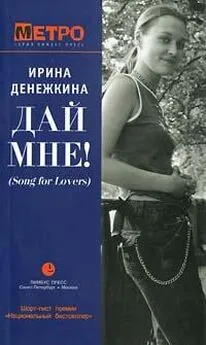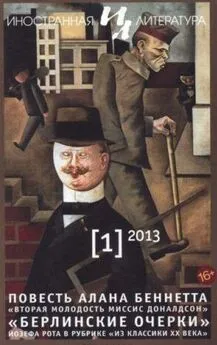Toni Morrison - Song of Solomon
- Название:Song of Solomon
- Автор:
- Жанр:
- Издательство:неизвестно
- Год:неизвестен
- ISBN:нет данных
- Рейтинг:
- Избранное:Добавить в избранное
-
Отзывы:
-
Ваша оценка:
Toni Morrison - Song of Solomon краткое содержание
Song of Solomon - читать онлайн бесплатно полную версию (весь текст целиком)
Интервал:
Закладка:
Unfit for any work other than the making of red velvet roses, she had a hard time finding employment befitting her degree. The three years she had spent in college, a junior year in France, and being the granddaughter of the eminent Dr. Foster should have culminated in something more elegant than the two uniforms that hung on Miss Graham’s basement door. That all these advantages didn’t was still incredible to her. It had been assumed that she and Magdalene called Lena would marry well—but hopes for Corinthians were especially high since she’d gone to college. Her education had taught her how to be an enlightened mother and wife, able to contribute to the civilization—or in her case, the civilizing—of her community. And if marriage was not achieved, there were alternative roles: teacher, librarian, or…well, something intelligent and public-spirited. When neither of these fates tapped her on the forehead right away, she simply waited. High toned and high yellow, she believed what her mother was also convinced of: that she was a prize for a professional man of color. So there were vacations and weekends in other cities as well as visits and teas in her own, where and when such men appeared. The first of the black doctors to move there, in the forties when she graduated, had a son five years her junior. The second, a dentist, had two infant girls; the third was a very old physician (rumored to be an alcoholic), whose two sons were already raising families. Then there were teachers, two lawyers, a mortician—but on the few occasions when eligible bachelors were among them, Corinthians was not their choice. She was pretty enough, pleasant enough, and her father had the money they could rely on if needed, but she lacked drive. These men wanted wives who could manage, who were not so well accustomed to middle-class life that they had no ambition, no hunger, no hustle in them. They wanted their wives to like the climbing, the acquiring, and the work it took to maintain status once it was achieved. They wanted wives who would sacrifice themselves and appreciate the hard work and sacrifice of their husbands. Corinthians was a little too elegant. Bryn Mawr in 1940. France in 1939. That was a bit much. Fisk, Howard, Talledega, Tougaloo—that was their hunting territory. A woman who spoke French and who had traveled on the Queen Mary might not have the proper attitude toward future patients or clients, and if the man was a teacher, he steered clear of a woman who had a better education than he did. At one point post office workers were even being considered suitable for Lena and Corinthians, but that was long after they had reached thirty-five, and after Ruth came to terms with the savage fact that her daughters were not going to marry doctors. It was a shock to them all, which they managed to withstand by not accepting a more complete truth: that they probably were not going to marry anybody.
Magdalene called Lena seemed resigned to her life, but when Corinthians woke up one day to find herself a forty-two-year-old maker of rose petals, she suffered a severe depression which lasted until she made up her mind to get out of the house. So her search for work—which was shock number two—was intense. The twenty-one years that she had been out of college worked against her for a teaching job. She had none of the “new” courses now required by the board of education. She considered going to the state teachers’ school to take the required courses, even went to the administration building to register. But the sight of those torpedo breasts under fuzzy blue sweaters, the absolute nakedness of those young faces, drove her out of the building and off the campus like a leaf before a hailstorm. Which was too bad, because she had no real skills. Bryn Mawr had done what a four-year dose of liberal education was designed to do: unfit her for eighty percent of the useful work of the world. First, by training her for leisure time, enrichments, and domestic mindlessness. Second, by a clear implication that she was too good for such work. After graduation she returned to a work world in which colored girls, regardless of their background, were in demand for one and only one kind of work. And by 1963, Corinthians’ main concern was simply that her family not know that she had been doing it for two years.
She avoided the other maids on the street, and those whom she saw regularly on the bus assumed that she had some higher household position than theirs since she came to work in high-heeled shoes and only a woman who didn’t have to be on her feet all day could stand the pressure of heels on the long ride home. Corinthians was careful; she carried no shopping bag of shoes, aprons, or uniforms. Instead she had a book. A small gray book on which Contes de Daudet was printed in gold lettering on its cover. Once she was inside Miss Graham’s house she changed into her uniform (which was a discreet blue anyway, not white) and put on a pair of loafers before she dropped to her knees with the pail of soapy water.
Miss Graham was delighted with Corinthians’ dress and slightly uppity manners. It gave her house the foreign air she liked to affect, for she was the core, the very heartbeat, of the city’s literary world. Michael-Mary Graham was very considerate of Corinthians. When she had large dinner parties, a Swedish cook was hired and the heavy work was done by the old white rummy she shared with the Goodwill Industries. Nor was she impatient with Corinthians’ undistinguished everyday cooking, for Michael-Mary ate several small plain meals. It was also a pleasure and a relief to have a maid who read and who seemed to be acquainted with some of the great masters of literature. So nice to give a maid a copy of Walden for Christmas rather than that dreary envelope, and to be able to say so to her friends. In the world Michael-Mary Graham inhabited, her mild liberalism, a residue of her Bohemian youth, and her posture of sensitive lady poet passed for anarchy.
Corinthians was naive, but she was not a complete fool. She never let her mistress know she had ever been to college or Europe or could recognize one word of French that Miss Graham had not taught her (entrez, for example). Actually, the work Corinthians did was good for her. In that house she had what she never had in her own: responsibility. She flourished in a way, and exchanged arrogance occasionally for confidence. The humiliation of wearing a uniform, even if it was blue, and deceiving people was tempered by the genuine lift which came of having her own money rather than receiving an allowance like a child. And she was surprised to discover that the amount of neatly folded bills Michael-Mary handed her each Saturday at noon was within two dollars of the amount real secretaries took home each week.
Other than scrubbing the kitchen tile and keeping a hard shine on the wooden floors, the work was not hard. The poetess lived alone and shaped her time and activities carefully in order to meet the heavy demands of artistic responsibility. Being a poet she could, of course, do little else. Marriage, children—all had been sacrificed to the Great Agony and her home was a tribute to the fastidiousness of her dedication (and the generosity of her father’s will). Colors, furnishings, and appointments had been selected for their inspirational value. And she was fond of saying, in deprecating some item, “I couldn’t write a line with that in the house.” That might be a vase, the new toilet bowl the plumbers hauled in, a plant, or even the Christmas wreath St. John’s third-grade class presented to her in gratitude for the moving reading she’d given at their holiday assembly. Every morning between ten and noon she wrote, and every afternoon between three and four-fifteen. Evenings were often given over to discussions and meetings with local poets, painters, musicians, and writers of fiction, at which they praised or condemned other artists, scorned the marketplace and courted it. Of this group Michael-Mary Graham was the queen, for her poetry had been published—first in 1938, in a volume called Seasons of My Soul; there was a second collection in 1941, called Farther Shores. What was more, her poems had appeared in at least twenty small literary magazines, two “slicks,” six college journals, and the Sunday supplements of countless newspapers. She was also the winner, between 1938 and 1958, of nine Poet of the Year awards, culminating finally in the much-coveted State Poet Laureateship. At the ceremony, her most famous poem, “Watchword,” was performed by the Choral Speech Society of St. John’s High School. None of that, however, had mitigated the reluctance of her publishers to bring out her complete collected works (tentatively called The Farthest Shore). But there was no question in her mind that they would come around.
When Miss Graham first saw Corinthians, she was not at all impressed with her. First, because the prospective employee came ten minutes early for the interview and Michael-Mary, who adhered to her schedule to the minute, was forced to answer the door in a print peignoir. Already irritated by this lapse, she was further disenchanted by the woman’s delicate frame. Obviously she could not put up the screens, take down the storm windows, or endure any sustained heavy cleaning. But when she learned the woman’s name, Michael-Mary was so charmed by the sound of “Corinthians Dead,” she hired her on the spot. As she told friends later, her poetic sensibility over-whelmed her good judgment.
They got on well together, mistress and maid, and by the sixth month of her stay, Michael-Mary suggested that she learn how to type. So Corinthians was almost on her way to becoming an amanuensis after all.
Shortly after Miss Graham encouraged her to take typing so she might be helpful with some of her mistress’s work, a black man sat down next to Corinthians on the bus. She took little notice of him—only that he was ill-dressed and appeared elderly. But soon she became aware that he was staring at her. A quick corner-of-the-eye peek to verify this was met by his radiant smile. Corinthians turned her head and kept it so until he got off.
The next day he was there again. Once more she made her disdain clear. The rest of the week passed without his watchful eyes. But on the following Monday he was back, looking at her with an expression that stopped just short of a leer. These occasional meetings went on for a month or so. Corinthians thought she should be afraid of him, for something in his manner suggested waiting—a confident, assured waiting. Then one morning he dropped a white envelope on the seat beside her just before he got off the bus. She let it lie there all the way to her stop, but couldn’t resist scooping it up as surreptitiously as possible when she stood to pull the cord.
Standing at the stove, waiting for Michael-Mary’s milk to skim, she opened the envelope and withdrew a greeting card. Raised letters of the word “Friendship” hung above a blue and yellow bouquet of flowers and were repeated inside above a verse.
Friendship is an outstretched hand,
A smile of warm devotion.
I offer both to you this day,
With all the heart’s emotion.
A white hand of no particular sex held another, smaller, blue and yellow bouquet. There was no signature.
Corinthians threw it in the brown paper bag opened for the day’s garbage. It stayed there all day, but it also stayed on her mind. When evening came, she reached down through the grapefruit rind, the tea leaves, and the salami casing to find it, brush it clean, and transfer it to her purse. She couldn’t explain to herself why. The man was a complete nuisance and his flirtation an insult. But no one, not anyone at all, had made any attempt (any serious attempt) to flirt with her in a long time. At the very least the card was good for conversation. She wished he had signed it, not because she wanted to know his name, but so it would look more authentic—otherwise somebody might think she bought it herself.
Читать дальшеИнтервал:
Закладка:








